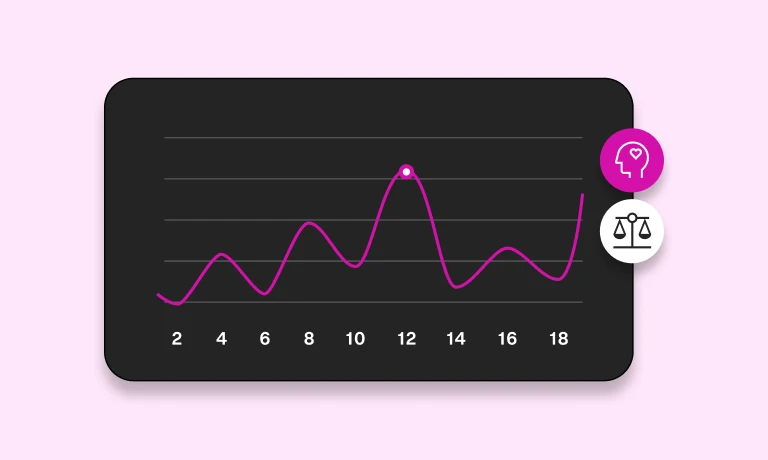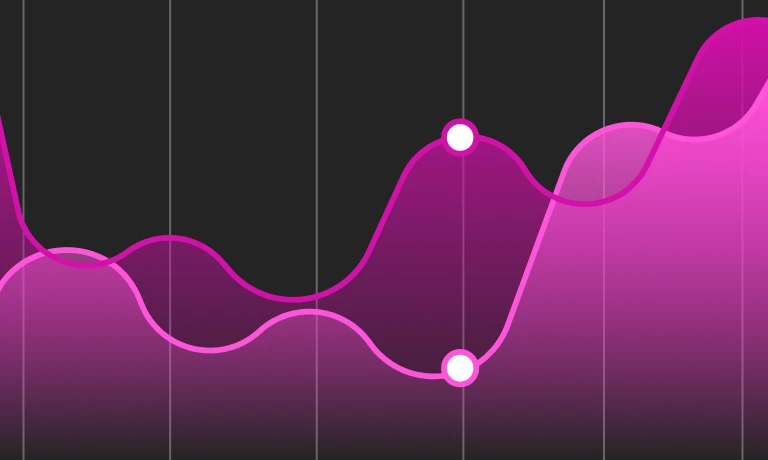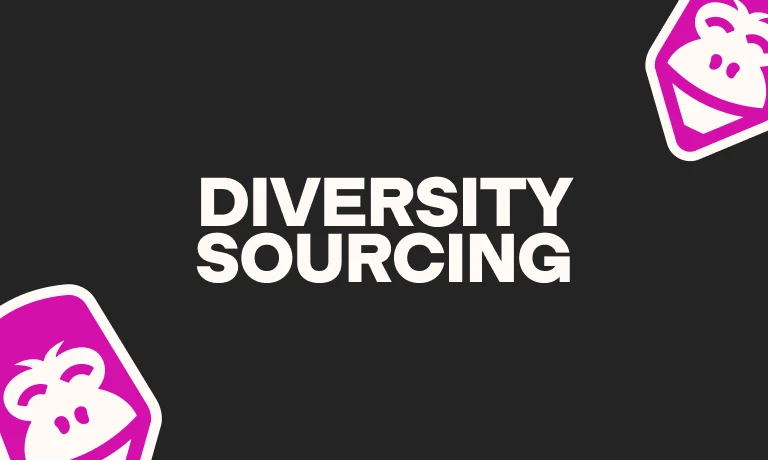Incisive recruiter interview questions to find the right hire
Table of contents
Finding the right fit for a role can be challenging, but when you’re hiring another HR professional it can get even more complicated. Whilst they may have the skills for the job they also have expertise in recruitment. This can make it more challenging to have an open conversation about the role during the interview process as they’re aware of the HR tools and methods that you use during the candidate discovery process.
That’s why you need to be prepared with a list of recruiter interview questions. Otherwise, you may find that you’re getting a rehearsed answer that ticks all of the boxes, rather than a true reflection of their suitability for the role.
Interviewing recruiter candidates
Today, hiring teams have access to new recruitment methods, such as online interviewing, candidate screening software, or job test skills. These are becoming more common as hiring managers seek more efficient ways to shortlist candidates, reduce time-to-hire, and avoid mishries.
This includes interviewing for HR professionals, where cultural fit, the ability to work with data, and communication—all essential HR skills—can be tested online as part of the screening process.
You may find it more beneficial to focus on competency or situational interview questions when it comes to hiring another recruiter. Competency and situational interview questions let the candidate talk, and open up a dialogue between the candidate and the recruiter. This will help you get a feel for how they would work in the role, review their handling of past situations and help you to identify the best candidate.
Let’s take a look at some recruiter interview questions that you can use to help find the right HR professional for your organization.
Recruiter interview question ideas
As an HR professional, it’s likely that you’ll already know the different types of interview questions, but we’ll recap really quickly just to ensure that it’s clear what we’re referring to as we go through the question types.
Situational to find the candidate’s approach to a specific scenario and how they would handle it.
Competency to test if the candidate has the attributes, knowledge, and behaviors that would lead them to be successful in the job.
Behavioral to assess character and how the candidate has approached potentially challenging situations in order to understand how they’d handle that situation in the future.
When it comes to hiring a recruiter, you want to focus on the first two. Understanding how they’ve handled situations in the past will give you a clearer understanding of whether they’re the right person for the job.
These allow you to understand more about your candidate, their motivations and what type of fit they are for the role at hand. They can also seem a little softer than question types based on experiences and situations, so these could be the ones to start off your interview with to build rapport and connection.
One of the challenges with behavioral interviews is that many job-seekers have their pre-prepared and formulated answers to these types of questions. This is particularly true with HR professionals, who have the insights as both a recruiter and a candidate. This means you don’t get a true reflection of that person from the questions and that there isn’t a genuine connection.
Behavioral interviews can also feel like they’re not a two-way process that aims to match candidate and employer together. When you’re hiring for a role in HR, it’s even more likely that the person you’re interviewing will be assessing you too.
The best insights on HR and recruitment, delivered to your inbox.
Biweekly updates. No spam. Unsubscribe any time.
Situational and competency-based interview questions
As a recruiter’s role will be to hire and fill vacancies within the organization, you’ll want to focus on how they handled those recruitment situations as a professional. You can ask questions about recent interviews they held and how they recruited the right candidate, including:
Describe the process you went through to identify and attract high-performing candidates.
How do you typically structure your interview? What’s your process for feedback?
Tell me about the last interviews you’ve held. How did you determine if the candidates were a good fit?
What was the last senior hire you made? Tell me about the process you went through to bring them to your company – what did it take?
Tell me about a time where you didn’t fill an open position. What did you learn from this? What went wrong?
If you have had a candidate who has been on the fence about taking a role at your organization, how did you get them to consider it? Did they join your company in the end?
You can also ask them about how they’re proactive in generating recruitment opportunities, instead of waiting for resumes to land on their desk, such as:
How do you build a talent pipeline? What are the steps that you take?
What tools do you use for sourcing? Why do you use it?
What’s your preferred ATS? Which others have you used? Why is this one your favorite?
A great way of getting to understand more about a candidate’s people skills and how they work with others as a recruiter is to ask questions that focus on collaboration and teamwork, such as:
Tell us about a time where you have mentored someone junior to you. What did you do to help them to develop?
How have you collaborated with your team to fill a role in the past? What was the outcome of the collaboration?
Have you ever worked with a hiring manager that has been difficult to please? How did you manage that relationship to ensure that you could meet the goals of the hiring process?
As a hiring manager, you’ll also understand the importance of hiring someone who’s the right fit for your company’s culture. Here are some recruiter interview questions to help you establish cultural fit:
Have you ever worked anywhere where the culture wasn’t a good fit for you? Why did you feel this way and what would have changed to make it better?
Have you ever worked in an unmotivating environment? How did you motivate yourself to continue your responsibilities?
Have you ever worked in a fast-paced culture? How did you manage your workload and what tools or tricks did you use?
Have you ever recognized that something at your company needed to change? How did you raise this and how did you drive that change?
General recruiter interview questions
Situational and competency interview questions are great but they don’t tell the whole story. It’s a great idea to get to know the candidate away from just their specific experience, whilst still keeping it professional and linked to the interview process. This is important to work out whether they’d fit into the wider organization and the team, as well as how they’d fit into the role. Interpersonal skills and cultural fit are extremely important parts of the hiring process, so getting to know a candidate is a great idea.
One of the key traits you want in a recruiter is a genuine passion for the work that they do. You want them to feel empowered and enabled to get the results you’re looking for in your hiring positions. They are often the first interaction that your candidate has with the organization as a whole, and the first impression and point of contact. You want recruiters who are truly passionate about what they do – and what your business does – so that you can staff it with the best and brightest.
Some great general recruiter interview questions include:
Why do you recruit?
What are your favorite roles to recruit for? Why?
Do you consider yourself to have any specialty when it comes to recruiting?
What are your favorite interview questions to ask candidates? Why?
What do you think is key for a successful recruiting process?
Are you responsible for checking references? What’s your typical reference checking process?
Have you ever recruited anyone who wasn’t qualified for the job?
The interview process should work both ways, and these questions will give the candidate an insight into your organization and the role. It isn’t just something that should be a one-way decision. Cultural fit and alignment are extremely important in the hiring process too.
The skills you need to see when hiring a recruiter
Recruitment has changed significantly over the last 10 or so years, so it’s essential that a candidate has the right blend of skills to be able to carry out a recruitment role well. Getting the wrong fit in your HR team can have real consequences on the rest of the organization.
Over the last 18 months or so, the recruitment landscape, economy, and jobs market have all been considerably different from any situation that has been experienced before.
Some skills, such as sourcing, relationship management, and influencing, are still as in demand as ever for a recruiter. Though where that takes place might be different as a recruiter than a decade ago. There’s now a need for additional skills such as social media savvy, data analytics, technical proficiency, and creativity, so you want to try and establish whether your potential hire also has these.
Data fluency is one of the most important skills that a recruiter can possess in today’s market, particularly when screening or analyzing a wide pool of applicants. This is true when it comes to reporting, sourcing and even scoring online tests – though there are tools available to help you with that part.
Strong people skills and the ability to influence, whilst remaining empathetic are two other skills that are valued in the recruitment industry. You definitely want to see those demonstrated along with the ability to be tenacious and resilient. The ability to market and sell effectively – wherever candidates in your chosen industry are – is important too.
Hiring a recruiter: what you need to know
Working in HR and recruitment isn’t an easy gig. There are different priorities and stakeholders to juggle and there can be disappointment along the way. Projects, timelines, and deliverables can change as you go along. That’s why it’s essential to get this hiring decision right.
You've scrolled this far
Why not try TestGorilla for free, and see what happens when you put skills first.


















